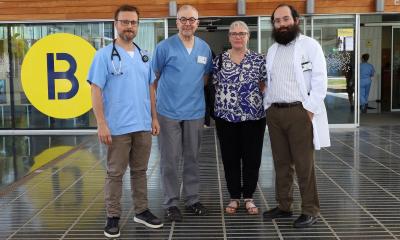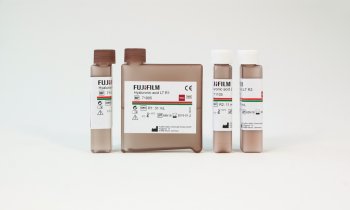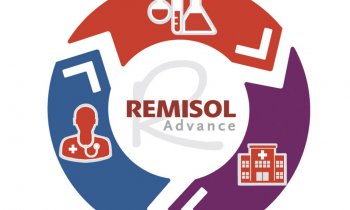Study
First digitally enhanced Randomised Controlled Trial
North West EHealth announced that its unique Linked Database System technology was used to deliver the world’s first digitally enhanced Randomised Controlled Trial (RCT) in the ground-breaking Salford Lung Study* (SLS). The study relied on bespoke software, developed by NorthWest EHealth and securely hosted within the NHS network, that integrated the electronic medical records of consented patients across all of their everyday interactions with their GPs, pharmacists and hospitals. This allowed inclusion of a broad population of patients in a real-life setting, embracing a novel approach to clinical trial design.

Conventional RCTs are usually conducted following strict inclusion criteria, which often exclude those patients with other multiple conditions. The SLS was designed to include such patients, thereby providing a substantial amount of data that is highly relevant to everyday clinical practice and is therefore representative of a much wider population. NWEH’s Linked Database System allowed close monitoring of patients’ safety in near real-time, but with minimal intrusion into their lives.
NWEH’s powerful data extraction and analysis technologies could ultimately enable drugs to get to market faster. By collecting healthcare information both quickly and efficiently, in line with best practice guidelines for security of patient data, the system offers a number of improvements compared with traditional RCTs. These include rapid patient recruitment, reduced clinical development time and costs, and increased responsiveness to patient safety through real-time monitoring.
Professor Martin Gibson, NorthWest EHealth Chief Executive, said: “This is not about Big Data, this is about understanding the way patients interact with medications in their everyday lives. Our unique technology supports understanding of NHS data to bring the right drugs to market quicker. In addition, this technology is not limited to the UK but could also be applicable to established digitalised health economies across the globe.”
The SLS, sponsored by GSK, examined the safety and effectiveness of a new treatment for chronic obstructive pulmonary disease (COPD). The study was placed in Salford due to the region’s existing infrastructure of integrated electronic health medical records. The SLS was delivered in partnership with NorthWest EHealth, The University of Manchester, Salford Royal NHS Foundation Trust, CK Aspire, Salford CCG, University Hospital South Manchester, South Manchester CCG and NIHR Clinical Research Network: Greater Manchester. This large collaborative effort involved over 2,800 consenting patients supported by 80 GP practices and 130 pharmacies in Salford and the surrounding Greater Manchester area.
Professor Ashley Woodcock, OBE, Consultant Respiratory Physician and Chief Investigator, Salford Lung Study, said: “The Salford Lung Study is a world first, and game changing for the way we do clinical trials. Patients’ lives are complicated, and NorthWest EHealth built technology that embraced this complexity. This paved the way for us to explore the clinical effectiveness of a treatment in the real world, whilst maintaining the robustness of a randomised controlled trial.”
Source: North West EHealth
02.06.2016










